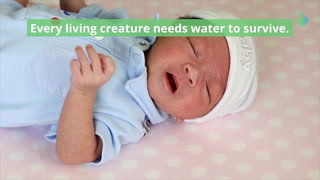
6 Surprising Signs That Show You're Dehydrated
Dehydration occurs when your body loses more fluids than it takes in, affecting essential functions. While thirst is the most common indicator, there are several unusual signs that might signal dehydration.

Woman eating while feeling dehydrated
6 Unexpected Signs of Dehydration:
- Bad Breath
- Caused by reduced saliva production
- Saliva has natural antibacterial properties
- Similar to morning breath mechanism
- Dry or Flushed Skin
- Skin becomes dry rather than sweaty
- Loss of skin elasticity
- Skin may appear flushed
- Muscle Cramps
- Common during exercise, especially in heat
- Caused by electrolyte imbalances
- Best treated with electrolyte-containing drinks
- Fever and Chills
- Can indicate heat illness
- May worsen existing dehydration
- Requires immediate medical attention if severe
- Food Cravings
- Especially for sweets
- Body has difficulty accessing energy stores
- Can be mistaken for hunger
- Headaches
- Even mild dehydration can trigger headaches
- Often relieved by drinking water
- May be accompanied by other symptoms

Baby swimming lesson water safety
How to Check for Dehydration:
- Skin Pinch Test
- Pinch skin on hand's back
- Should spring back within seconds
- Slow return indicates possible dehydration
- Urine Color Check
- Light lemonade color is ideal
- Darker yellow indicates dehydration
- Clear urine might mean overhydration
Prevention Tips:
- Carry a water bottle
- Flavor water with fruit
- Drink herbal tea or coffee
- Choose hydrating snacks
- Eat water-rich produce
- Sip water during meals
Daily Water Intake Guidelines:
- Women: 2.7 liters
- Men: 3.7 liters
Special Considerations:
- Older adults face higher dehydration risks
- Athletes need additional hydration
- Medical conditions may affect hydration needs
- Pregnancy and breastfeeding require extra fluids
Remember: Prevention is key. Don't wait until you're thirsty to drink water. Severe dehydration requires immediate medical attention.
